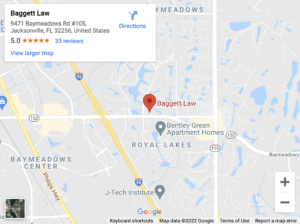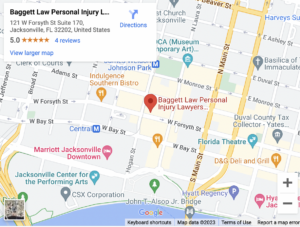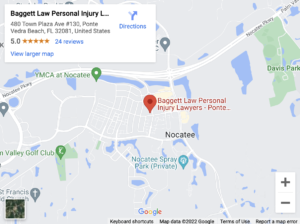
When you’ve been injured in an accident, navigating the claims process with insurance companies can feel overwhelming. Whether you’ve been in a car crash, suffered a slip and fall, or experienced another type of injury, understanding how to settle a personal injury claim with an insurance company is crucial. This guide provides essential steps and helpful tips on how to handle the settlement process in Florida.
What Is a Personal Injury Claim?

A personal injury claim arises when someone is injured due to another party’s negligence or wrongdoing. This could be in a car accident, a workplace accident, or even a slip and fall incident. If the negligent party has insurance coverage, their insurer may be responsible for compensating you for medical bills, lost wages, pain and suffering, and other damages.
The Insurance Claim Process
When you file a personal injury claim, the goal is to secure compensation for the injuries you’ve sustained. This compensation is often negotiated with the responsible party’s insurance company.
The settlement process typically involves the following steps:
Documenting Your Injuries and Damages
Before reaching out to the insurance company, it’s important to gather all relevant evidence of your injuries.
This may include:
- Medical records and bills
- Proof of lost wages
- Photos of the accident scene
- Statements from witnesses
Documentation is critical because insurance companies often rely on this evidence to determine how much compensation you deserve.
Notifying the Insurance Company
After documenting your injuries, contact the insurance company to report the accident. In Florida, it’s important to notify your own insurance provider in a timely manner. Failure to notify your insurer of an accident within a reasonable time could result in a denial of your claim.
Reviewing Your Insurance Policy
Before negotiating a settlement, review your own policy and the policy of the at-fault party. This will help you understand the coverage limits and types of damages that might apply to your situation. In Florida, drivers are required to have Personal Injury Protection (PIP) coverage. PIP can help cover medical expenses regardless of who was at fault. Additionally, check for any uninsured or underinsured motorist coverage, which could be important if the responsible party lacks adequate coverage.
Negotiating a Settlement
Once you’ve gathered all documentation and your medical condition has stabilized, the next step is negotiating a settlement. Insurance companies often start by offering a low settlement to protect their bottom line. It’s important to remember that you don’t have to accept the first offer.
In Florida, insurance companies must act in good faith during negotiations. However, they may still attempt to undervalue your claim to avoid paying a fair amount.
When negotiating, consider the following:
- The full extent of your injuries and the impact on your life
- Future medical expenses related to the injury
- Emotional distress and pain and suffering
- Lost wages or earning capacity
An experienced personal injury lawyer can assist you in evaluating settlement offers and ensuring you aren’t pressured into accepting an unfair settlement.
Knowing When to Accept or Reject an Offer
Once the insurance company presents an offer, you’ll need to decide whether to accept or reject it. If the settlement offer seems fair and will cover all your current and future expenses, accepting it may be the right choice. However, if the offer is too low, you have the right to reject it and continue negotiations.
In Florida, the statute of limitations for most personal injury cases is typically two years from the date of the accident. It’s crucial to settle or file a lawsuit within this time frame to protect your right to compensation.
Understanding Florida’s Comparative Fault Law
Florida operates under a modified comparative fault rule, which means if you are partially responsible for the accident, your compensation may be reduced based on your percentage of fault. For example, if you are deemed 20% at fault for the accident, your final settlement would be reduced by 20%. It’s important to be aware of this law when negotiating with an insurance company in Florida, as they may try to argue that you share some responsibility for the accident.
When to Involve a Personal Injury Attorney
While it’s possible to settle a personal injury claim on your own, working with a skilled personal injury attorney can often result in a better settlement.
Attorneys bring valuable experience to the table, including:
- Knowledge of Florida personal injury law and insurance regulations
- The ability to assess the full value of your claim
- Experience negotiating with insurance companies and their legal teams
Injury victims with an attorney typically receive higher settlements than those who represent themselves. Having a dedicated advocate on your side can make the process less stressful and ensure your rights are fully protected throughout the claims process.
Contact a Florida Personal Injury Attorney for a Free Consultation
Settling a personal injury claim with an insurance company requires patience, persistence, and knowledge of both the legal and claims process. By documenting your injuries, understanding your insurance policy, and negotiating strategically, you can work toward a fair settlement. If you’re unsure about any part of the process, consider consulting a Florida personal injury attorney. Bagget Law Personal Injury Lawyers is here to help you protect your rights and guide you through the settlement process. Contact us online or call us at (904) 396-1100 to discuss your case.




